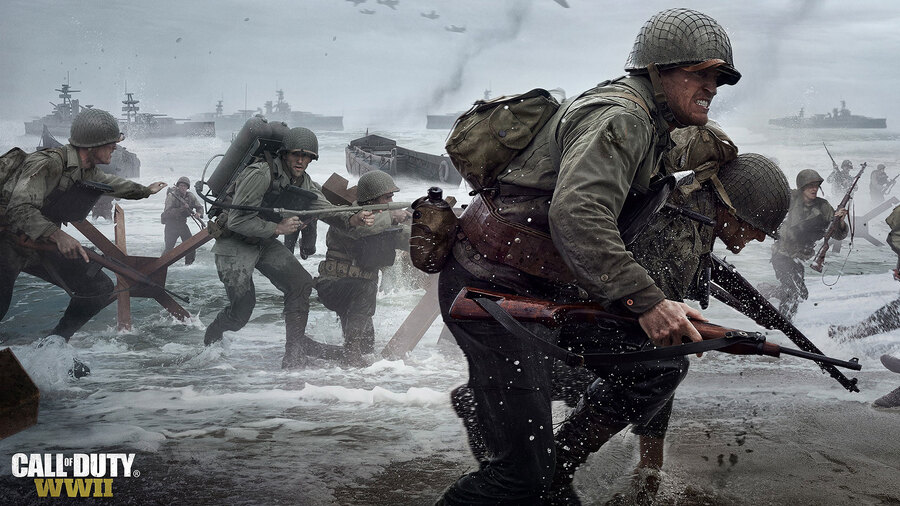
Recently, we got the chance to sit down and discuss the process behind composing the soundtrack for Call of Duty: WWII’s soundtrack, with its composer Wilbert Roget II, who's no stranger to working on games. We dove deep into some of the finer points of the score, and got a glimpse behind the curtain at his process and some of the inspirations for how the music ended up the way it did. Dig in!
Push Square: When I think about music for World War II shooters, even all these years later, my mind still immediately goes to Michael Giacchino's work on the original Medal of Honor. Were there any games or films you specifically looked at to develop the sound you wanted for CoD: WWII? And by the same token, were there any you looked at with the intention of actively avoiding their sounds?
Wilbert Roget II: I was already familiar with Giacchino’s work on that series as well as the original Call of Duty, so the bulk of my pre-composition research was in film and 20th century art music. Before I began game-specific sound explorations, I made sure to watch a number of war films – World War II and modern conflicts – to get into the correct mindset. Fury and Saving Private Ryan certainly were at the top of the list, though I also had a look at The Hurt Locker and Zero Dark Thirty to study more personal, modern-era stories.

Once I started to build a soundscape and palette for Call of Duty: WWII, though, I turned away from the film references and focused more on 20th century art music for more direct sonic inspiration. Pieces like Claude Vivier’s 'Zipangu', Toru Takemitsu’s 'Requiem for String Orchestra' and Krzysztof Penderecki’s 'Threnody for the Victims of Hiroshima' were the inspiration for many of the chaotic, gritty, and aleatoric ["chance music", in which some element of the music is left to chance at the discretion of the performers] orchestral sounds I used throughout the Call of Duty: WWII score.
There weren’t necessarily any scores I studied with the specific intention to avoid their sounds, but I certainly wanted to get away from an overtly “epic” sound or a Romantic affect. It was important that we told a very personal, relatable story that conveyed the terrors of war as well as the bravery of the individual, and brotherhood of the platoon. I made sure to stay away from some of the World War II sonic stereotypes (such as heroic trumpets, snare drums, and high woodwinds) that might diminish this personal, relatable vibe.
CoD: WWII is by no means your first gaming project. How’d you break into the field? And was there any specific thing that you remember that made you think “Wow, I need to work in this industry”, or did it just happen organically?
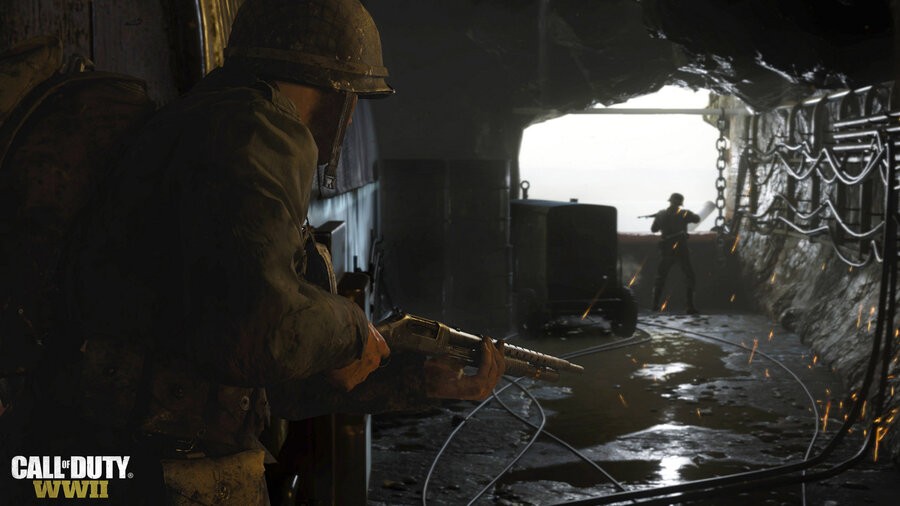
I actually wasn’t much of a gamer growing up, instead focusing on music studies and piano performance. But as soon as I saw the first commercials for Final Fantasy VII, a game that boasted cinematic storytelling and a compelling cast, I immediately became interested. Nobuo Uematsu’s timeless melodic score inspired me to write original music for games, even as a preteen just entering high school.
I continued to study music throughout college, writing scores for indie games and films. About two years after graduating from Yale, I was hired as a music editor at LucasArts, and had my first experiences working on AAA titles. Then a year or two into that job, I overheard our music supervisor mention that they were looking for an additional composer for Star Wars: The Old Republic, so I wrote a demo piece that very night, showed him the next day, and became one of the primary orchestral composers on the project.
Having worked on quite a few games already (like the aforementioned The Old Republic), in what ways do you approach scoring games differently now from when you first started?
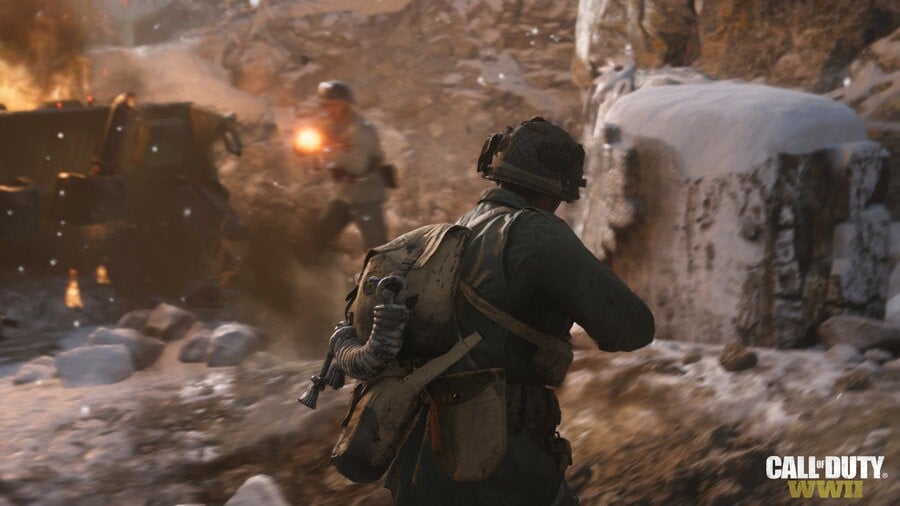
I try to approach every game differently, especially since I’ve had the privilege of working on a wide range of genres and franchises. That said, in the past five years I’ve developed this idea of “scoring in the first person”, versus scoring in the third person. Most game music is written in the third person; that is, the composer is commenting on a scene from a distant perspective. First person scoring, however, is more akin to method acting: you place yourself in the scene, becoming the protagonist and experiencing the world firsthand from that perspective.
Music is less about commentary and more about experience, and the precise emotions of the protagonist. For instance, my score to Lara Croft and the Temple of Osiris was written in a very distant third person, with sweeping epic orchestral arrangements and ethnic color to evoke the Egyptian setting. But my Call of Duty: WWII score is largely in the first person perspective, which focused on the protagonist’s experience and without as much embellishment. Even our approach to the orchestral mix reflected this, as we used a bare minimum of reverb, closely-placed microphones, and solo strings throughout the score for an up-close-and-personal sound.
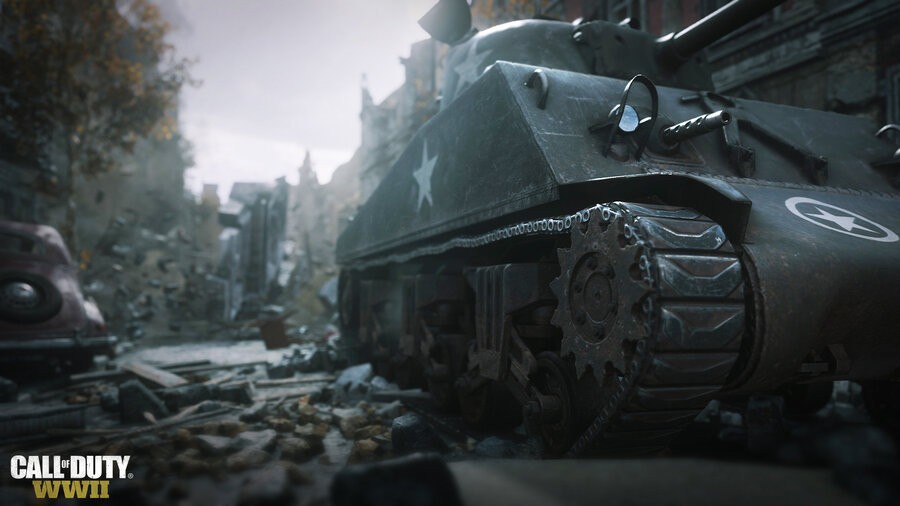
Push Square: Going back to Temple of Osiris, how does your approach with music differ on a game like that versus something that has a narrower, more linear approach to its gameplay than something like an MMO? The experiences are wildly different from a player’s standpoint, after all.
Linear games often have the advantage of being slightly closer to the film paradigm – music generally is implemented for specific scenes, rather than relying on a generalised system like an MMO or open world game might require. While the composition aspect is largely the same, linear games generally allow for more stand-out pieces, as there isn’t as much of a danger of the player becoming fatigued by hearing the same tracks over hundreds of hours of gameplay. A linear game can have much more precision as well in its implementation, using combinations of systemic music and tightly-scripted music triggers, whereas MMOs are far too large for this level of detail and require more generalized implementation.
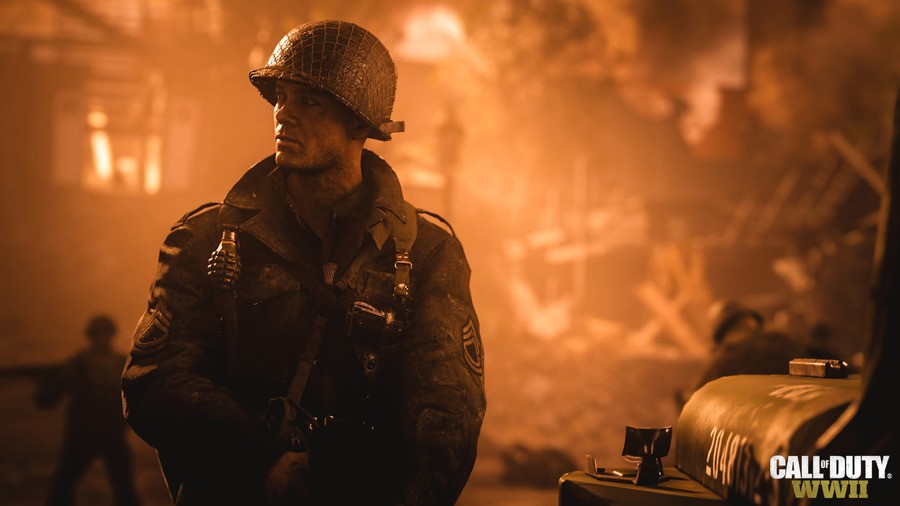
One question I find I’m always interested in asking is how you approached dynamic loops in the game. It’s something people outside game music generally don’t have to think about, and the answers I’ve seen in regards to this have been wildly varied!
We worked with the music team at Sony Interactive Entertainment to handle music supervision, implementation, editing and mixing for Call of Duty: WWII, so effectively I didn’t have to worry about loops or implementation at all! I simply wrote through-composed pieces with defined intros, endings and moments of tension within, and the Sony team edited them into the loops, stingers, and transitions you hear in-game. I delivered all of my work in stems, (with every instrument/effect as an isolated sound file), and we recorded the orchestra with separated sections as well, so the Sony editors had a great deal of flexibility to create in-game assets.
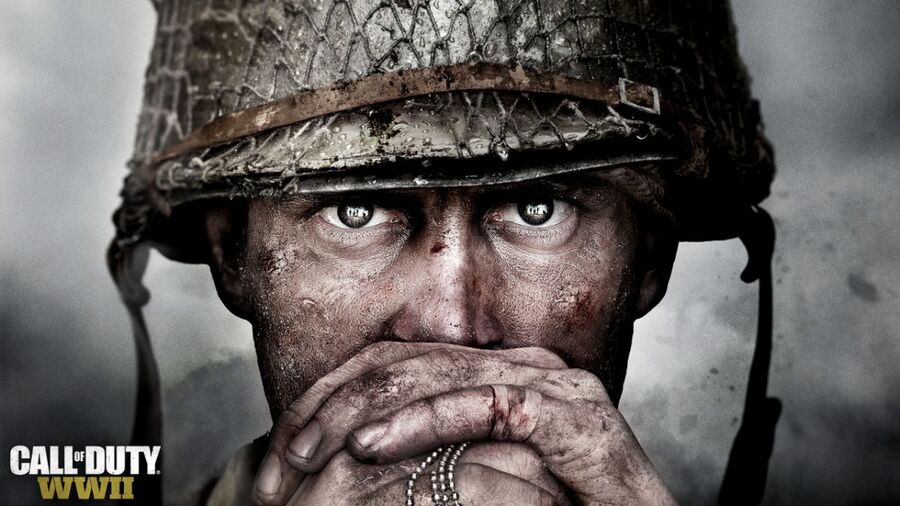
Was there a moment while you were crafting the score for CoD where everything just clicked? The moment where you just knew, “Yes, this is going to be this game’s sound”?
I would say that out of any score I’ve ever written, Call of Duty: WWII had the most complicated and sensitive music direction overall. It was vitally important that we knew exactly where we were on a scale from “period” to contemporary, from blockbuster to personal, and so on. Most of these questions were answered with the main theme, 'A Brotherhood of Heroes' – I tried to use as many sonic ideas and experiments as possible within the piece, so that it could serve as a palette for the rest of the score. After that, I wrote the first action cue ('Marigny'), and later the faction themes ('Welcome to the Bloody First' for the Allies and 'The Wolves’ Den' for the Axis powers), and at that point we all had a strong consensus about the sound of the score as a whole.
Along that thought process, is there any standout track you found yourself really fond of when all was said and done? And in addition, any that gave you some extra trouble to get just where you wanted it?
The main theme certainly was the most challenging piece to write, primarily because as I mentioned, it would be the blueprint for the entire score – serving to outline all of the signature sounds, main melodies, and arrangement and orchestration “rules”. But I’m particularly grateful that Sledgehammer Games allowed me to write tracks like 'Home' and 'Berga' – simple, focused, and emotionally honest pieces that underscored moments in the game that portray sincerity in the storytelling that’s rare to see in an otherwise bombastic action title.
Finally, is there anything that happened during the course of scoring CoD, either on a technical level or crafting a story out of music or anything in between, that you know you’re going to find useful on the road ahead beyond this game, be it for another game, a film, or just music in general?
I think the most profound lesson I learned while writing this score is the idea of musical “focus”. Before Call of Duty: WWII, I had written mostly for epic fantasy and sci-fi titles, all featuring larger-than-life stories and superhero protagonists. But in this game, all of the characters are realistic, human and vulnerable, and the setting is a real war that actually happened – and was the deadliest conflict in human history. The melodic and orchestral embellishments I was used to employing for my fantasy scores were no longer appropriate, and I had to write with more maturity and economy than ever before. So it was an incredible honour and privilege to have the opportunity to work on Call of Duty: WWII, and explore this very different yet deeply personal approach to music composition.
That about does it – some wonderful insights into the music process. The soundtrack is available now, having launched alongside the game, and you can find a few sample tracks, including the main theme that Wilbert mentioned, here on his Soundcloud.





Comments 5
Really interesting interview as always, Graham. I thought the bit about Sony working on the loops was really interesting. I knew they had a division that worked on audio for (most) first-party games, but I had no idea they took third-party contracts, too.
Great interview. I have to say the theme to CoD:WWII is quickly becoming one of my favorite game themes. It really puts you in the mood and mindset to play WWII. I even have it as my theme for my home screen on my PS4.
I liked the soundtrack on CoD: WWII but IMO nothing comes close to the Medal Of Honor series, particularly MoH: Frontline, I think it really captures the theme of WW2 and you can hear the sad sombre moments in the music as well as it building up dramatically at times. Even after all these years, nothing has come close to matching Frontline’s musical score.
Good read
@get2sammyb Yeah some help from Sony on third-party titles as well is really interesting!
@Tasuki Yeah it's really great! It's mile ahead of what I've come to expect from the series on the music front.
@MaccaMUFC RIght there with ya! The original medal of honors them is one of my favorite pieces of music ever. And the theme for Arnhem in Frontline is incredible too. I really like the music in this game though. It coulda went the route of looking at the Medal of Honor scores in the glory days, and reverse-engineer them, but instead, we got something wholly different, but still incredible.
Show Comments
Leave A Comment
Hold on there, you need to login to post a comment...